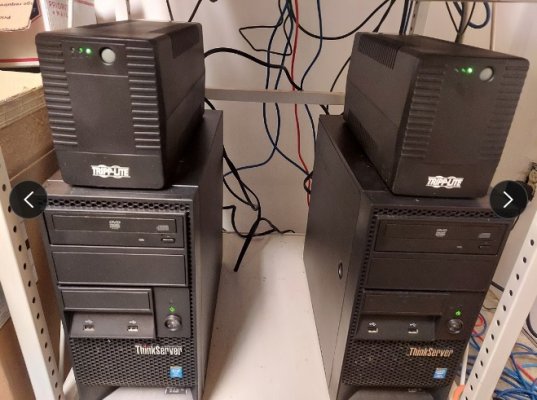SecondAttempt
Thinks s/he gets paid by the post
Inspired by the "bought a new UPS battery I didn't need thread" I'm looking for recommendations for home UPS's. I open to brands but like APC so that's my go to.
Our power outages are usually an hour or less but if longer stretch into days so I am only looking to ride through 1-2 hours. I have a home network and a lot of home automation going on. I'm mainly looking to back up the main network so we can keep using it running to use laptops and tablets until their batteries run out. But I have lots of stuff connected to high tech power strips with remote control/automatic response capability so I can manage load shedding, e.g. turn off security cameras and other things to extend UPS coverage.
My main requirement is that the UPS NOT have a fan that runs when on utility power. This is something they are very evasive about. In terms of capacity, my setup uses about a dozen high tech power strips so I would probably be looking at several smaller capacity UPS.
TLDR; what's the largest capacity APC UPS that does not have a fan that runs when not in UPS mode?
Our power outages are usually an hour or less but if longer stretch into days so I am only looking to ride through 1-2 hours. I have a home network and a lot of home automation going on. I'm mainly looking to back up the main network so we can keep using it running to use laptops and tablets until their batteries run out. But I have lots of stuff connected to high tech power strips with remote control/automatic response capability so I can manage load shedding, e.g. turn off security cameras and other things to extend UPS coverage.
My main requirement is that the UPS NOT have a fan that runs when on utility power. This is something they are very evasive about. In terms of capacity, my setup uses about a dozen high tech power strips so I would probably be looking at several smaller capacity UPS.
TLDR; what's the largest capacity APC UPS that does not have a fan that runs when not in UPS mode?


 . Still haven't gotten around to that.
. Still haven't gotten around to that.